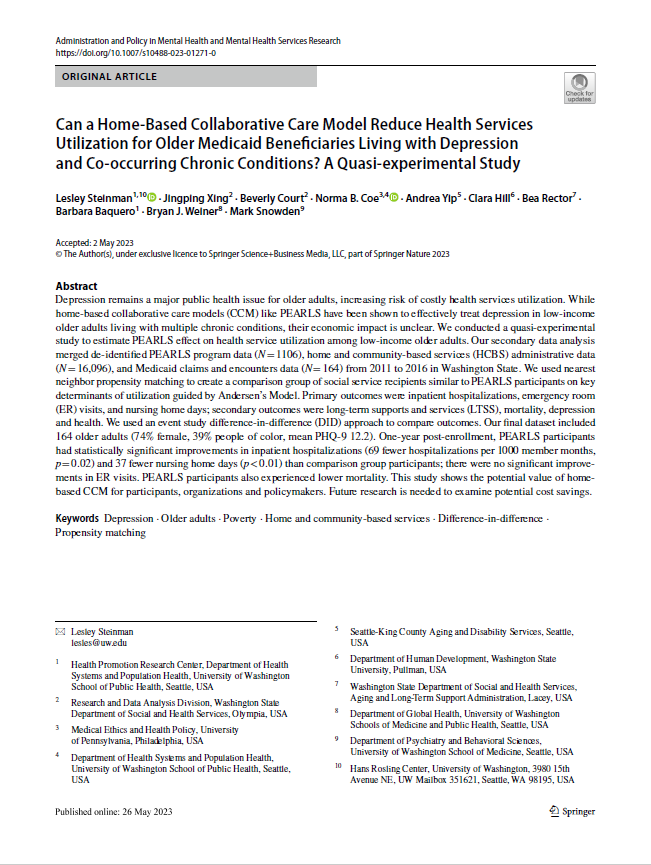Headline
Home-based collaborative care models (CCMs) can reduce health services utilization for low-income older adults living with depression.
Context
Depression in older adults is associated with higher health services utilization, particularly for those with low-incomes, as they are more likely to have inadequate access to routine mental health and primary care. Home-based collaborative care models (CCMs) have demonstrated significant reductions in late-life depression symptoms and effectively treat depression in low-income older adults living with multiple chronic conditions. However, there is limited literature on the economic impact of these models. This study examined the impact of a home-based CCM in Washington State, PEARLS, on health service utilization using routine administrative data and Medicaid claims data.
Findings
The authors reported a statistically significant reduction in the number of inpatient hospitalizations among PEARLS participants one-year post-enrollment, compared to participants who did not receive PEARLS. PEARLS participants had 37 fewer nursing home days than the comparison group. There were no significant improvements reported in emergency department visits. Additionally, PEARLS participants used on average 1.19 fewer community residential care months, used on average 3.85 more in-home LTSS service months, and experienced significantly lower mortality during the follow-up period versus the comparison group.
Takeaways
There is strong evidence to support that home-based CCMs yield reduced health services utilization which may result in health care savings long-term. Given the potential implications for cost-savings from reduced health care services utilizations, policymakers can consider the value of home-based CCM for older adults living with depression. The authors highlight that recent payment reform models, including the Medicare Access and CHIP Reauthorization Act of 2015 (MACRA), provide an opportunity for home and community-based services to be reimbursed for home-based CCM programs that address late-life depression.

